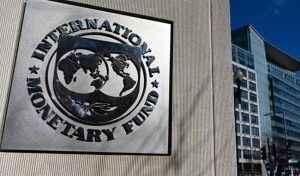“Urgent Action Needed: Pakistan at a Crossroads in the Battle Against Rising HIV Cases”

Muhammad Naeem:
As nations worldwide observe World AIDS Day, Pakistan finds itself in a critical moment of contemplation, grappling with a concerning surge in HIV cases. HIV, transmitted through specific bodily fluids, gradually erodes the body’s immune defenses. Without timely treatment, it advances to AIDS, leaving the body vulnerable to even minor illnesses. Recent reports paint a somber picture of Pakistan’s struggle against this public health crisis, especially when contrasted with global efforts to manage and curb the spread of HIV.
According to UNAIDS data, Pakistan has witnessed a staggering increase in HIV cases, soaring from 75,000 in 2010 to a staggering 270,000 in 2022. This alarming trend underscores an insufficient response to the epidemic, with only a fraction of those diagnosed receiving essential antiretroviral therapy, leaving the majority at risk of further transmission. The crux of the challenge lies in the lack of awareness about one’s HIV status—a double-edged sword that not only delays treatment but also perpetuates the stigma associated with HIV.
This stigma, deeply rooted in societal norms and misconceptions, poses a significant barrier to effective prevention and treatment strategies. Of particular concern is the rising number of infections among women and children, with cases among women increasing from 9,000 in 2010 to 49,000 in 2022 and in children from 830 in 2010 to 6,700 in 2022.
Pakistan’s dependence on foreign donors for its HIV program highlights the urgent need for the government to assume financial ownership and reinforce its commitment. In stark contrast, India’s notable reduction in new infections—from 120,000 in 2010 to 66,000 in 2022—serves as an example of the impact of a proactive and coordinated response.
On this World AIDS Day, it is imperative to recognize that the battle against HIV/AIDS extends beyond the health sector. It calls for a societal shift to dispel myths, combat discrimination, and foster a supportive environment. Mental health support, stringent infection control in medical facilities, and inclusive policies for marginalized communities are indispensable.
At this pivotal juncture, Pakistan stands at a crossroads: either escalate efforts to align with global targets for eliminating HIV/AIDS or continue grappling with its relentless spread. The path forward demands bold action, unwavering political will, and a unified national response to alter the course of this preventable and treatable disease in Pakistan.





